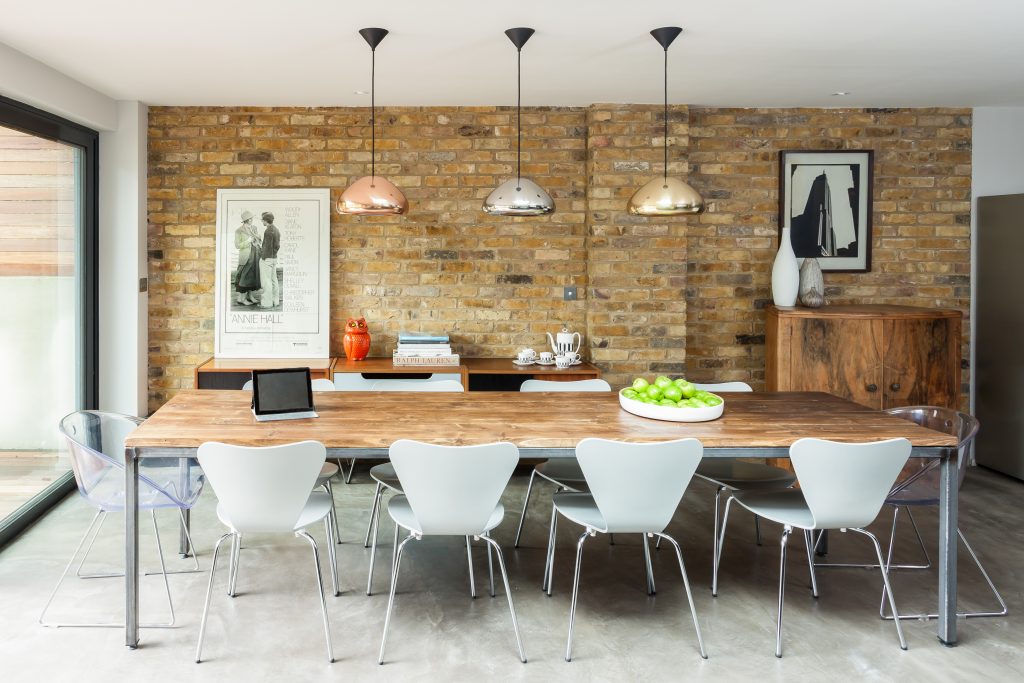Getting your Business Finances straight, from the start!
Our dealings with The Unholy Trinity of Tax, Lawyers and Accountants depend very much on which path you chose for your journey in interior design – whether you are employed or self-employed. Regardless, getting to grips with your business finances is the most critical element!
![]()
Working for another Interior Designer
If you’re lucky enough to have landed a permanent job with another designer, your tax affairs are straightforward and you may never need the services of either an accountant or lawyer. Working as a freelance Interior Designer can allow you the flexibility to run your own projects as well as gaining key experience while working under the guidance of other designers.
● Working as a freelancer/contractor
If you are working as a contractor or freelancer, things are a little more tricky (although you’re still unlikely to need a lawyer unless things take a bad turn). It’s not as stable as a permanent job, but it works for a lot of designers.
You’ll need to issue Invoices to your client company (in this case the Interior Designer for whom you are working) in order to get paid, and you’ll need an Invoice Template and some kind of tracking mechanism (maybe just an Excel workbook) as a minimum.

As a contractor/freelancer you do have the option to operate via your own limited company – in this case the following section on running your own company is relevant for you. If you are freelancing, remember to check that your Employer has Employer’s Liability Insurance. Also, if you are visiting sites for your employer, you may also want think about having your own Personal Accident Insurance in case you take a fall. If you can’t work, you are unlikely to get paid and you will still have bills to pay.
Running your own Interior Design company
Running your own Interior Design company is the ultimate goal for most designers. Putting your own stamp on your work and working from home are just a few of the benefits of running your own company and there are a few different options to choose from.

● Working as a sole trader
A sole trader is the most common form of trading platform in the UK, according to government statistics. From a tax perspective, you will be liable to income tax on the profits of your business. On the downside, you will then be personally liable for your debts.
As a sole trader, you will need to raise invoices for your services to your employer in order to get paid, as you would if you were working as a freelancer or contractor.
You will have to complete a tax return each year. As the business owner being responsible for the finances, you may want to consider using some accounting software. This is particularly important if you actually work for a number of different design companies. (Have a look at products like Xero, Quickbooks, KashFlow and Intuit). Your tax affairs as a Sole Trader can be a little tricky and there’s probably a lot of value in hiring an accountant.
![]()
● Setting up as a limited company
If you decide to set out on your own (or with like-minded designers), the simplest option is to set up a limited company. You’ll almost certainly need an accountant (unless you already blessed with being one from a previous life), and they will be able to help you with creating your company, registering it with Companies House and HM Revenue & Customs, and generally getting started.
As a director of a company you’ll have to complete a Tax Return every year (if you don’t already), and you’ll have some statutory duties to Companies House in regards Corporation Tax and annual accounts – again your accountant will set you straight. You’ll need to discuss VAT with your accountant and decide whether or not to be VAT-registered.

You will probably need the services of a lawyer, especially to review things like your Client Contract as well as your Business Terms & Conditions which will need to be in place, plus any other legal text like the Terms of Use for your website. You will also want to get your Purchasing Terms & Conditions set-up for engaging with suppliers, especially when it comes to bespoke items.
● Setting up a business partnership
If you are setting out with others, you might want to explore the possibilities of a partnership, in which case you will definitely need a lawyer. You will want to ensure that you understand and implement Power of Attorney. This mandates how a company may continue to operate if one of the business partners is incapacitated.

However, before you talk to anyone, you need the most important thing, which is your company name. We’ll talk more about this in a later post. Basically you need to find a unique, unused company name. Ideally this name is clear, meaningful and gives some clue as to what you actually do. It also needs to be easy to spell, pronounce, read, memorable and easily converted to an internet domain name! Not easy, but more on that later.
Business Bank Account
Of course, you’ll also need company bank accounts etc, typically a Main Current Account, plus 3 Money Manager (Savings) accounts.
● Don’t forget one for VAT (needed for your VAT returns on sales after expenses).
● One for Corporation Tax on your profit.
● One for your First Project / Resources which you need to keep separate from business funds. However your accountant can advise further on that.
● Remember though, your bank might charge you for each separate savings account. Perhaps start out with just one and see how you go.

Sound terrifying? It doesn’t have to be – ask friends, family and colleagues for good recommendations for an Accountant.
If you are a Metier Member, just ask on the Metier Slack channel for recommendations for a good accountant – they’ll have taken people through the process many times and will see you right. Do always meet the accountant before engaging them.
You want to make sure that there will be a good working relationship moving forward. Remember it’s in their interests for your company to succeed. You’ll then be paying them fees for many years to come!
TOP TIP from Richard Keys of Richard Keys Accountancy
Always try to keep on top of the paperwork and bookkeeping. Initially this maybe just a few minutes a day. However, it’s good to get into the correct habits from the outset. As the business grows, set aside a specific time each week, to catch up on the bookkeeping and paperwork. This maybe 1 or 2 hours a week. It is far easier to spend 1 or 2 hours a week on a task than leave it untouched for 6 months. Otherwise it takes 3 or 4 days to sort things out.
Ultimately the focus is on running and growing your business. However create good habits from the start with respect to the boring tasks of bookkeeping. This will stand you in good stead for the future.
Also there is always a certain satisfaction when tasks are up to date. By having a good routine, the bookkeeping can always be up to date. The stress of this being in arrears can be completely avoided.
Remember that the Metier members have been through every variant of this journey many times. They are all still moving forward on their own paths, so don’t be afraid to ask!